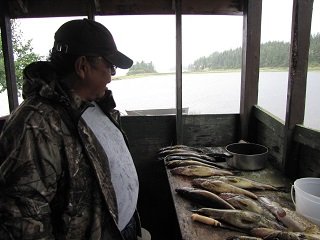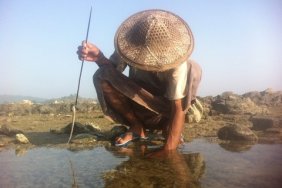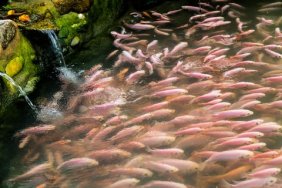 For many, fishing is a world of challenge, sport, and reward, while others earnestly catch fish for food. Not only is it rewarding and delicious to prepare the day’s catch after some time on the water, but it can also be incredibly healthy for you. Fish is a great source of protein and is also high in vitamins and minerals, while being low in unhealthy fats. It’s important to keep in mind, however, that while fish tends to be a very healthy choice, eating fish from certain bodies of water may be unsafe. Today, we’ll take a look at this vital fact, as well as ways you can determine if the fish you catch are safe to eat.
For many, fishing is a world of challenge, sport, and reward, while others earnestly catch fish for food. Not only is it rewarding and delicious to prepare the day’s catch after some time on the water, but it can also be incredibly healthy for you. Fish is a great source of protein and is also high in vitamins and minerals, while being low in unhealthy fats. It’s important to keep in mind, however, that while fish tends to be a very healthy choice, eating fish from certain bodies of water may be unsafe. Today, we’ll take a look at this vital fact, as well as ways you can determine if the fish you catch are safe to eat.
The harsh truth is chemicals find their way into our waters from any one of dozens of sources, including factories, sewage plants, and even runoff from your neighborhood streets. Fish taken from affected waters can contain these pollutants, which can potentially cause health problems like liver damage, birth defects, and even cancer.
The Environmental Protection Agency provides several tools you can use to find out if fish from a given region are consumable. Also, there are safe eating guidelines that highlight which fish from certain bodies of water you should avoid because of contaminants like mercury, PCBs, chlordane, dioxins, and DDT. These advisories also provide guidelines for those who are at a higher risk for mercury when it comes to fish consumption, such as pregnant women, nursing mothers, and young children.
Of course, I’m not attempting to scare anyone away from eating the fish they catch. I’m simply trying to help you choose and prepare the right fish—fish that are low in chemicals or pollutants. By educating yourself and visiting helpful websites like the ones listed below, you can ensure that you continue to enjoy fish for many years.
For information on the health risks of consuming chemically affected fish, as well as advisories for your region, visit the following websites:








